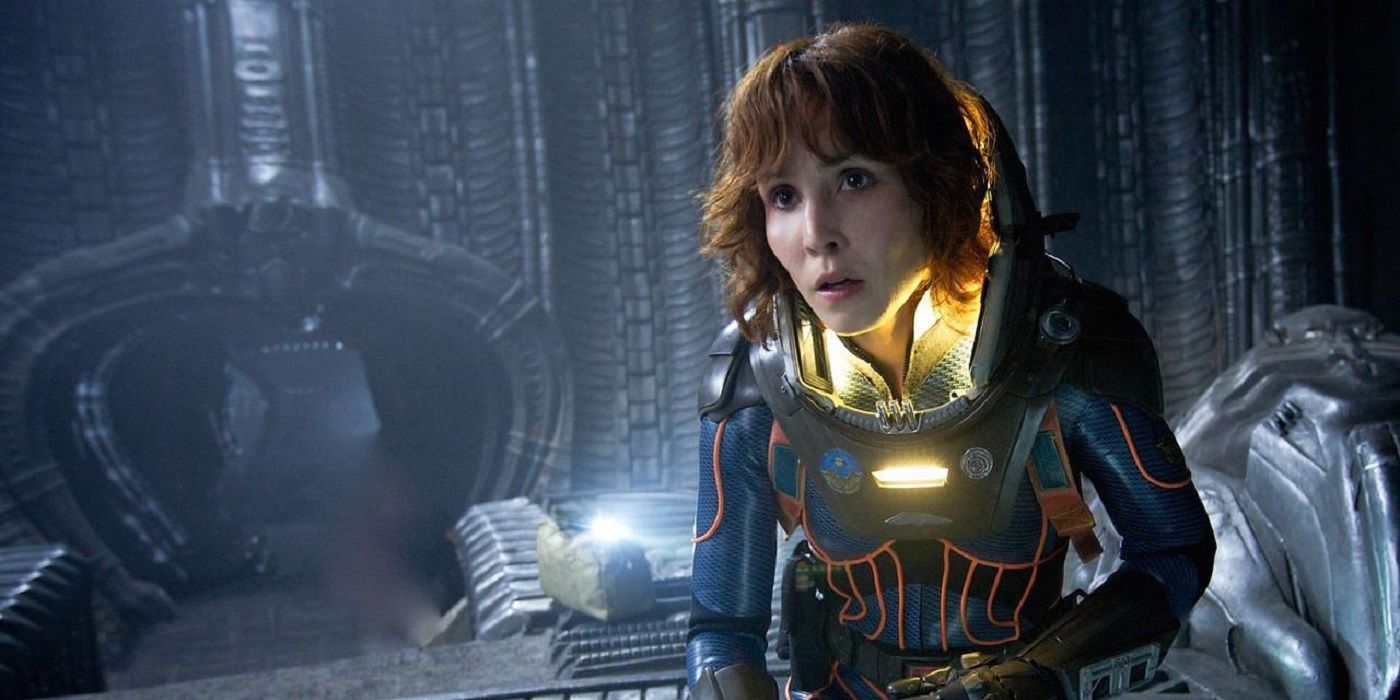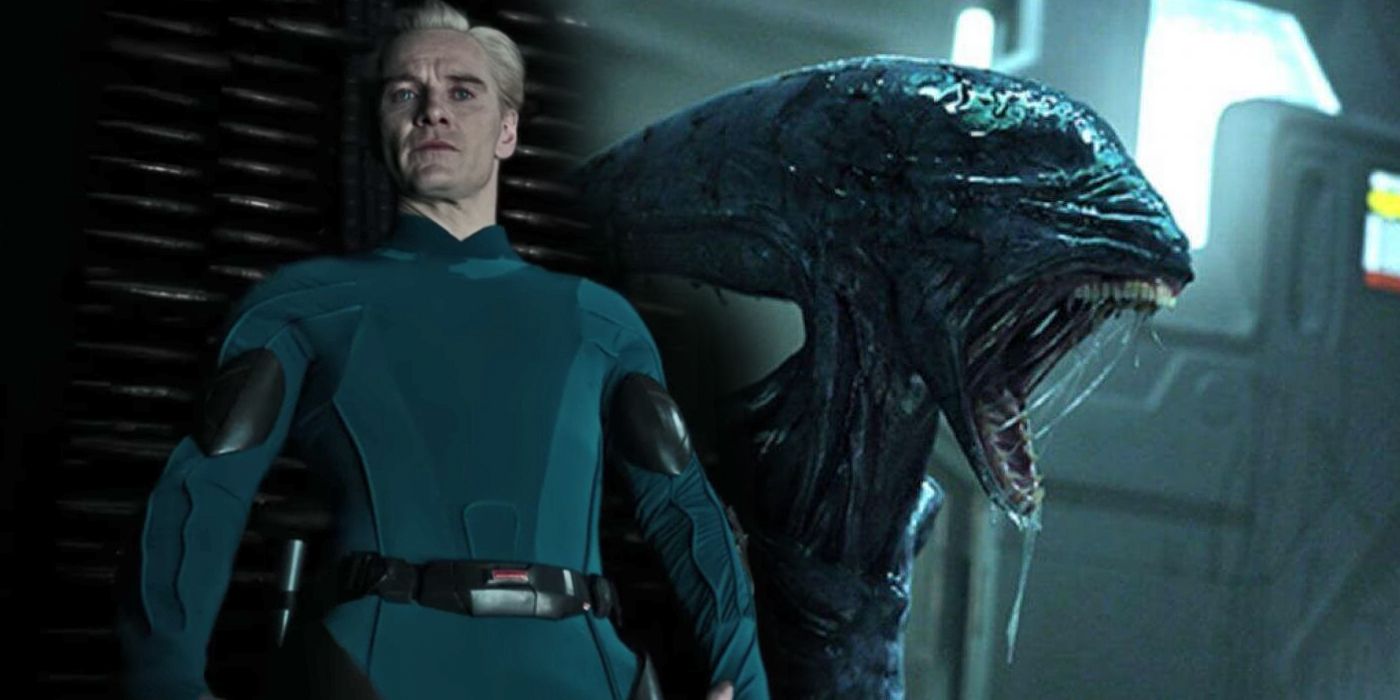
Ridley Scott's Prometheus was perhaps one of the most confounding, divisive films within the Alien franchise upon its debut in 2012. The movie attempted to explain the origin of the Xenomorphs while introducing its own high-concept sci-fi ideas that, at first, seemed far separated from the Alien mythos that was familiar to audiences. The narrative thus functioned as both a prequel and a standalone movie, confusing fans who were left with more unanswered questions than before. However, the original script, which was written by Jon Spaihts, contained more explicit connections to the original Alien films. It wasn't until Damon Lindelof rewrote the screenplay with the guidance of director Ridley Scott, who shifted the focus away from the franchise's beastly villains, that the story morphed into the pseudo-prequel that is its final product.
Part of the reason that Prometheus is so confusing is because of its major tonal and thematic shifts throughout the film. It's a heady sci-fi treatise on the origins of human life that ponders existential questions about religion and identity, but also a visceral horror story with nods to past franchise entries. The completed version of the script centers around the Engineers, a race of alien beings who aided the biological development of the human species, more than it does the Xenomorphs, the antagonistic creatures of the Alien series. In attempting to explain both the motivations of the mysterious and god-like Engineers alongside establishing the birth of the Xenomorphs, Prometheus leaves open-ended ideas that may have complimented the film's philosophical undertones but also detracted from the story's coherence.
The original script was more focused on paying tribute to the 1979 Alien film and functioned as a prequel more than the theatrical release did. Entitled Alien: Engineers, Spaihts' script introduced the Xenomorphs earlier in the plot when the scientists discover their remains in pyramid structures on the same moon as the original movie. Although Alien: Engineers might have made for a more straightforward viewing experience, it also was more derivative of older plot elements that Prometheus was.

Jon Spaihts didn't just write a prequel in tone, he explicitly connected events in his draft with Alien. Namely, the film's original ending acted as a bridge to the beginning of the 1979 film, with the Engineers' ship crashing and becoming the derelict spacecraft that Ripley's crew discovers the alien eggs on. The Engineers themselves are more connected to the Xenomorphs, biological weapons that attack and kill their creators. In Prometheus, it is a black gooey liquid that is the weapon, corrupting organisms that come into contact with it. David gives this substance to archaeologist Holloway, who impregnates the protagonist, Shaw, with a tentacled creature. In Alien: Engineers, Holloway nurses a chestburster after an encounter with a facehugger. The creature pops out of his body during his sexual encounter with the protagonist, who in this instance is named Shaw.
Perhaps most significant is Spaihts' greater emphasis on the Xenomorph itself. In Prometheus, the audience doesn't actually see the classic Xenomorph creature until the final seconds. In Alien: Engineers, David deliberately allows a facehugger to latch onto Watts, forcing her to extract a Xenomorph from her body instead. The alien goes on a killing rampage, thus firmly focusing the film's narrative efforts on creating a cosmic horror movie rather than speculative sci-fi. The changes Lindeloff made only hinted at the presence of Xenomorphs for the majority of the film, instead choosing to explore the mythology of the Engineers and their role in the origins of human life.
from ScreenRant - Feed https://ift.tt/3bOd9WS

No comments: